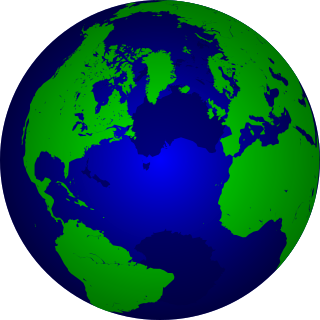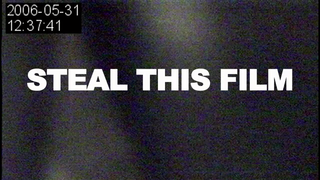
There are a number of disputes concerning the Church of Scientology's attempts to suppress material critical of Scientology on the Internet, utilizing various methods – primarily lawsuits and legal threats, as well as front organizations. In late 1994, the organization began using various legal tactics to stop distribution of unpublished documents written by L. Ron Hubbard. The organization is often accused of barratry through the filing of SLAPP suits. The organization's response is that its litigious nature is solely to protect its copyrighted works and the unpublished status of certain documents.
Ripping is extracting all or parts of digital contents from a container. Originally, it meant to rip music out of Commodore 64 games. Later, the term was used to extract WAV or MP3 format files from digital audio CDs, but got applied as well to extract the contents of any media, most notably DVD and Blu-ray discs.

Marxists Internet Archive is a non-profit online encyclopedia that hosts a multilingual library of the works of communist, anarchist, and socialist writers, such as Karl Marx, Friedrich Engels, Vladimir Lenin, Leon Trotsky, Joseph Stalin, Mao Zedong, Rosa Luxemburg, Mikhail Bakunin, Peter Kropotkin and Pierre-Joseph Proudhon, as well as that of writers of related ideologies, and even unrelated ones. The collection is maintained by volunteers, and is based on a collection of documents that were distributed by email and newsgroups, later collected into a single gopher site in 1993. It contains over 180,000 documents from over 850 authors in 80 languages.

The Vector Map (VMAP), also called Vector Smart Map, is a vector-based collection of geographic information system (GIS) data about Earth at various levels of detail. Level 0 coverage is global and entirely in the public domain. Level 1 is only partly in the public domain.
File sharing in Canada relates to the distribution of digital media in that country. Canada had the greatest number of file sharers by percentage of population in the world according to a 2004 report by the OECD. In 2009 however it was found that Canada had only the tenth greatest number of copyright infringements in the world according to a report by BayTSP, a U.S. anti-piracy company.
Various copyright alternatives in an alternative compensation systems (ACS) have been proposed as ways to allow the widespread reproduction of digital copyrighted works while still paying the authors and copyright owners of those works. This article only discusses those proposals which involve some form of government intervention. Other models, such as the street performer protocol or voluntary collective licenses, could arguably be called "alternative compensation systems" although they are very different and generally less effective at solving the free rider problem.

Steal This Film is a film series documenting the movement against intellectual property directed by Jamie King, produced by The League of Noble Peers and released via the BitTorrent peer-to-peer protocol.

A copyfraud is a false copyright claim by an individual or institution with respect to content that is in the public domain. Such claims are wrongful, at least under US and Australian copyright law, because material that is not copyrighted is free for all to use, modify and reproduce. Copyfraud also includes overreaching claims by publishers, museums and others, as where a legitimate copyright owner knowingly, or with constructive knowledge, claims rights beyond what the law allows.

Canada ranks as the 21st in the world for Internet usage with 31.77 million users as of July 2016 (est), making up 89.8% of the population. According to Harvard researchers, Canada has some of the lowest internet standards among OECD countries, as a result of high costs and slow internet speeds.
File sharing is the practice of distributing or providing access to digital media, such as computer programs, multimedia, program files, documents or electronic books/magazines. It involves various legal aspects as it is often used to exchange data that is copyrighted or licensed.

The use of the BitTorrent protocol for the unauthorized sharing of copyrighted content generated a variety of novel legal issues. While the technology and related platforms are legal in many jurisdictions, law enforcement and prosecutorial agencies are attempting to address this avenue of copyright infringement. Notably, the use of BitTorrent in connection with copyrighted material may make the issuers of the BitTorrent file, link or metadata liable as an infringing party under some copyright laws. Similarly, the use of BitTorrent to procure illegal materials could potentially create liability for end users as an accomplice.
Digital rights management (DRM) is the management of legal access to digital content. Various tools or technological protection measures (TPM) such as access control technologies can restrict the use of proprietary hardware and copyrighted works. DRM technologies govern the use, modification, and distribution of copyrighted works, as well as systems that enforce these policies within devices.

The GNU Free Documentation License is a copyleft license for free documentation, designed by the Free Software Foundation (FSF) for the GNU Project. It is similar to the GNU General Public License, giving readers the rights to copy, redistribute, and modify a work and requires all copies and derivatives to be available under the same license. Copies may also be sold commercially, but, if produced in larger quantities, the original document or source code must be made available to the work's recipient.

Copyright infringement is the use of works protected by copyright without permission for a usage where such permission is required, thereby infringing certain exclusive rights granted to the copyright holder, such as the right to reproduce, distribute, display or perform the protected work, or to make derivative works. The copyright holder is typically the work's creator, or a publisher or other business to whom copyright has been assigned. Copyright holders routinely invoke legal and technological measures to prevent and penalize copyright infringement.
File sharing in the United Kingdom relates to the distribution of digital media in that country. In 2010, there were over 18.3 million households connected to the Internet in the United Kingdom, with 63% of these having a broadband connection. There are also many public Internet access points such as public libraries and Internet cafes.

Internet censorship in South Korea is prevalent, and contains some unique elements such as the blocking of pro-North Korea websites, and to a lesser extent, Japanese websites, which led to it being categorized as "pervasive" in the conflict/security area by OpenNet Initiative. South Korea is also one of the few developed countries where pornography is largely illegal, with the exception of social media websites which are a common source of legal pornography in the country. Any and all material deemed "harmful" or subversive by the state is censored. The country also has a "cyber defamation law", which allow the police to crack down on comments deemed "hateful" without any reports from victims, with citizens being sentenced for such offenses.
There is medium internet censorship in France, including limited filtering of child pornography, laws against websites that promote terrorism or racial hatred, and attempts to protect copyright. The "Freedom on the Net" report by Freedom House has consistently listed France as a country with Internet freedom. Its global ranking was 6 in 2013 and 12 in 2017. A sharp decline in its score, second only to Libya was noted in 2015 and attributed to "problematic policies adopted in the aftermath of the Charlie Hebdo terrorist attack, such as restrictions on content that could be seen as 'apology for terrorism,' prosecutions of users, and significantly increased surveillance."

The Stop Online Piracy Act (SOPA) was a controversial proposed United States congressional bill to expand the ability of U.S. law enforcement to combat online copyright infringement and online trafficking in counterfeit goods. Introduced on October 26, 2011 by Representative Lamar Smith (R-TX), provisions included the requesting of court orders to bar advertising networks and payment facilities from conducting business with infringing websites, and web search engines from linking to the websites, and court orders requiring Internet service providers to block access to the websites. The proposed law would have expanded existing criminal laws to include unauthorized streaming of copyrighted content, imposing a maximum penalty of five years in prison.











